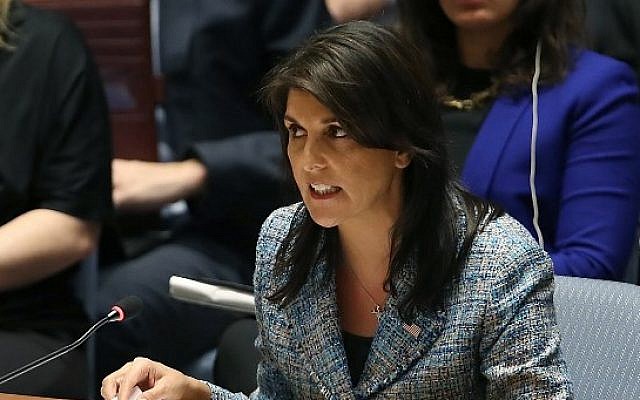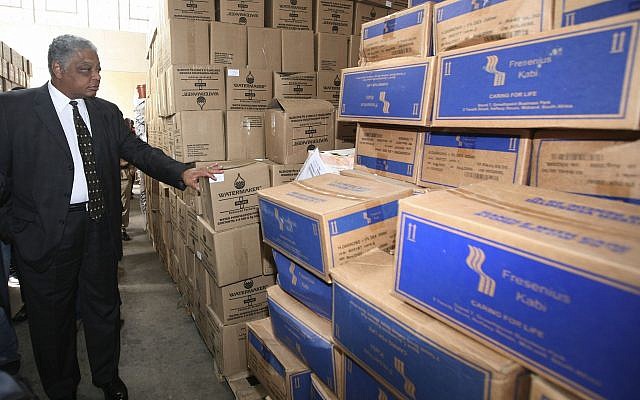Memo obtained by Foreign Policy details proposal to withdraw aid, including funds to build schools, from some 40 countries that don’t vote with Washington at world body

WASHINGTON — US Ambassador to the United Nations Nikki Haley is pushng ahead with her threat to punish countries that don’t fall in line at the world body, reportedly drafting a memo outlining aid cuts that should be considered.
The document proposes to partially condition US foreign aid on voting with the US at the UN, while specifically cites three countries that voted in favor of a General Assembly resolution last year condemning US President Donald Trump’s recognition of Jerusalem as Israel’s capital and plans to move the US embassy there, according to a report in Foreign Policy published Thursday.
“The autopilot nature of many US foreign assistance efforts is leaving far too much ‘low-hanging fruit’ that should be either eliminated or leveraged into greater support at the UN and elsewhere,” the plan, drafted by Haley’s staff, reportedly says.
Aid to some 40 countries that consistently vote opposite the US at the UN is reportedly under threat.
The proposal appears to target development programs in poorer countries with little to offer the US economically or security-wise, while giving others a pass.
The document, titled “America First Foreign Assistance Policy,” specifically calls for reconsidering America’s commitment to a $4.9 million school construction program in Ghana, a $6.6 million climate change program in Vietnam, and $3.1 million job training program in Zimbabwe.
It claimed the US gave $580 in total aid to those three countries in 2016, while Ghana voted with the US in New York 54 percent of the time, Vietnam was with it just 38% of the time and Zimbabwe 19%.
“None voted with us on Jerusalem, even though none have a strong domestic constituency compelling the vote,” the 53-page memo says, referring to a December vote condemning the US for recognizing the city as the capital of Israel.
The statement seems to indicate that Muslim-majority countries in the Middle East and elsewhere could be forgiven on that specific resolution.
The plan, which allows for other factors aside from dovetailing with Washington at the UN to determine aid levels, notes that some countries that consistently vote against the UN will be given a pass “in favor of US security or economic needs.”

States such as Iraq, one of the biggest recipients of US assistance that votes against the US 60 percent of the time, would be spared, as would Egypt.
Since the Jerusalem resolution, both Trump and Haley have repeatedly threatened to withdraw aid from countries that voted to condemn the US decision. Ahead of the vote, both Haley and Trump threatened to cut aid, but the resolution nonetheless passed 128-9 with 35 abstentions.
Haley recently told the annual AIPAC conference: “We’re not forgetting that vote. As I said at the time: On that vote, we were taking names.”
Thus far, the US has only cut aid to the Palestinians, as punishment for refusing to enter peace negotiations with Israel. Former US envoy to the UN John Bolton, widely reported to be in consideration for a senior Trump administration role, also favors conditioning aid on support at the UN.
As reported by The Times of Israel
